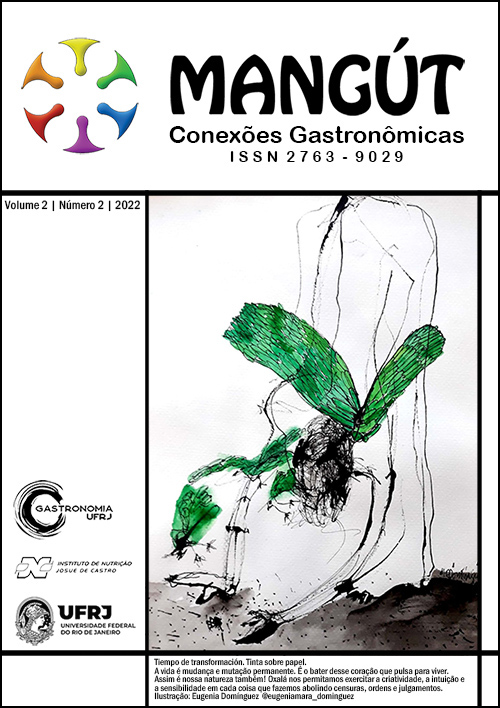Gastronomic experiences: a report of teaching and extension in southern Brazil
DOI:
https://doi.org/10.70051/mangt.v2i2.55076Keywords:
Gastronomy, Extension, Teaching, Workshop,Abstract
The article proposes to share extensionist experiences and their relationship with the gastronomy teaching. This papper is based on the experience of two workshops held at the Fenadoce event in June 2022. Regional cuisine, creative autonomy and the conversion of teaching actions into extension activities are themes that are at issue in the development of the proposal. Between creation and recreation, activities initiated in the classroom gain new complexities when directed to the model of culinary workshops. As a teaching action, the initiative guarantees the complexity of student training. With regard to extension, the activity gives back to the community the knowledge generated at the university level, providing exchanges and disseminating information on culinary preparations.
Downloads
Published
Issue
Section
License
Copyright (c) 2023 Guilherme Rodrigues de Rodrigues, Nicole Weber Benemann, Rangel Carraro Toledo Borges, Tatiane Kuka Valente Gandra

This work is licensed under a Creative Commons Attribution 4.0 International License.
Autores que publicam nesta revista concordam com os seguintes termos:
- Autores mantém os direitos autorais e concedem à revista o direito de primeira publicação, com o trabalho simultaneamente licenciado sob a Licença Creative Commons Attribution que permite o compartilhamento do trabalho com reconhecimento da autoria e publicação inicial nesta revista.
- Autores têm autorização para assumir contratos adicionais separadamente, para distribuição não-exclusiva da versão do trabalho publicada nesta revista (ex.: publicar em repositório institucional ou como capítulo de livro), com reconhecimento de autoria e publicação inicial nesta revista.
- Autores têm permissão e são estimulados a publicar e distribuir seu trabalho online (ex.: em repositórios institucionais ou na sua página pessoal) a qualquer ponto antes ou durante o processo editorial, já que isso pode gerar alterações produtivas, bem como aumentar o impacto e a citação do trabalho publicado (Veja O Efeito do Acesso Livre).



